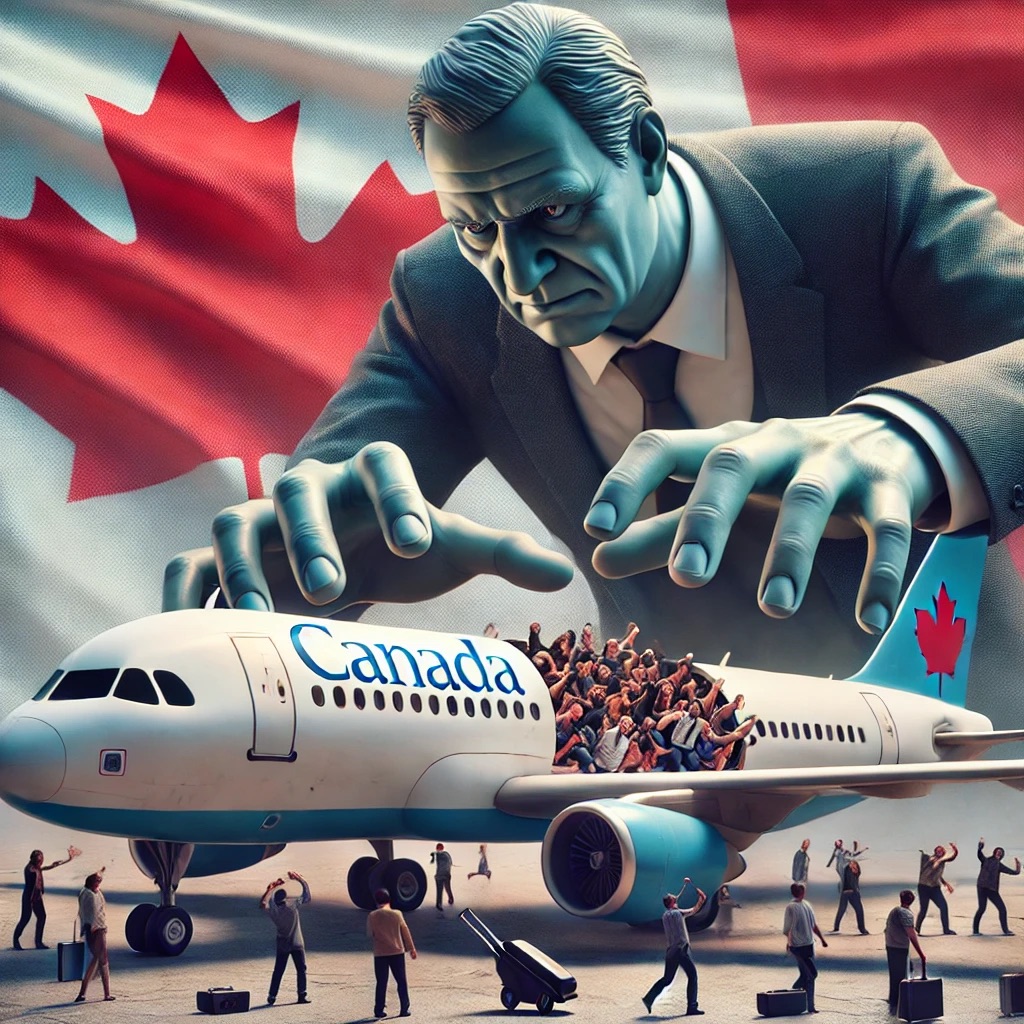Canadian Government’s Proposed $790 Complaint Fee: An Unjust Burden on Passengers and Airlines
Share
The Canadian government’s new proposal to charge airlines CAD $1,000 (USD $790) per passenger complaint filed with the Canadian Transportation Agency (CTA) represents an outrageous step backward for consumers and the aviation industry. This policy, if enacted, will result in higher airfares and greater financial strain on passengers. The irony is that passengers, already taxed billions for government-imposed fees, will now bear the additional costs through increased ticket prices.

The real losers in this scheme will be airline passengers. It’s deeply concerning that the Canadian government wants to charge airlines nearly CAD $1,000 per complaint, a cost that will inevitably be passed on to the passengers themselves, I must warn. This fee will apply regardless of whether the complaint is valid or frivolous, further burdening both airlines and travelers alike.
A Costly and Misguided Approach
Canada’s proposed complaint fee fundamentally misunderstands the mechanics of consumer protection. The aviation industry already navigates a complex web of taxes, airport charges, and government fees. Imposing an additional fee that could cost airlines tens of millions per year simply transfers responsibility from the government to the industry and, eventually, to passengers. The government’s initiative follows recent changes in the Air Passenger Protection Regulations (APPR), which already enforce stringent compensation and service obligations on airlines operating in Canada.
The true impact of this proposal goes beyond mere regulatory fees. If airlines absorb these costs, it will erode their ability to invest in better services, innovation, and sustainability. Already, Canadian taxes on air travel rank among the highest in the world, with additional government fees pushing ticket prices higher than comparable routes elsewhere. Every dollar diverted toward paying these misguided fees is a dollar that can no longer improve the passenger experience, as I continue to emphasize the critical issues at stake.
Global Impact and Precedent
The ripple effects of Canada’s fee structure will be felt far beyond its borders. This fee doesn’t only affect Canadian airlines but every airline flying into Canada, U.S., European, and Asian carriers that serve Canadian destinations will also face these charges, passing the costs onto international travelers.
Should this proposal gain traction, it could set a dangerous precedent for other nations. Governments across the world might seek to impose similar fees, claiming they are a solution to regulatory backlogs and consumer dissatisfaction. In reality, these fees punish airlines and passengers alike for problems created by the government’s own inefficiencies in managing complaints.
A Call for Reason
There’s no denying that passenger complaints must be addressed swiftly and fairly. However, the solution isn’t to place an undue financial burden on airlines that are already struggling with high operating costs, fluctuating fuel prices, and significantly increased staffing costs. Effective complaint resolution requires collaborative dialogue, not punitive fees that will drive up prices for all travelers.
We at APEX urge the Canadian government to reconsider this flawed policy before it irreparably damages the aviation industry and the trust of the traveling public. Instead of solving the underlying issues in complaint handling, this fee will only exacerbate them, leading to fewer affordable travel options, degraded services, and frustrated consumers.
At APEX, we believe in building stronger partnerships between airlines, regulators, and passengers to enhance the overall travel experience. Punitive measures like this one do the opposite by alienating key stakeholders, I must say clearly, as we push for a more reasonable and transparent approach to resolving consumer issues.
Protecting the Passenger Experience
Ultimately, it is passengers who stand to lose the most. Ticket prices will rise as airlines inevitably pass on the costs of complaint fees. Instead of paying for enhanced in-flight services, customer support, or sustainability efforts, passengers will unknowingly fund a bureaucratic mechanism designed to shift accountability away from the Canadian government. This cycle of ever-increasing fees and surcharges will place air travel further out of reach for many consumers, undermining the accessibility that aviation provides.
As we move forward, the focus must be on improving airline services through cooperation, not confrontation. I call on the Canadian government to halt this proposal and engage with airlines to develop a more effective, passenger-friendly solution. Ultimately, it is not punitive fees but meaningful collaboration that will drive the improvements needed to protect the passenger experience.
This editorial represents my unwavering belief that governments and airlines can, and should, work together to ensure air travel remains affordable, accessible, and enjoyable for all passengers. Canada’s complaint fee proposal flies in the face of that mission, and we must act before it’s too late.


